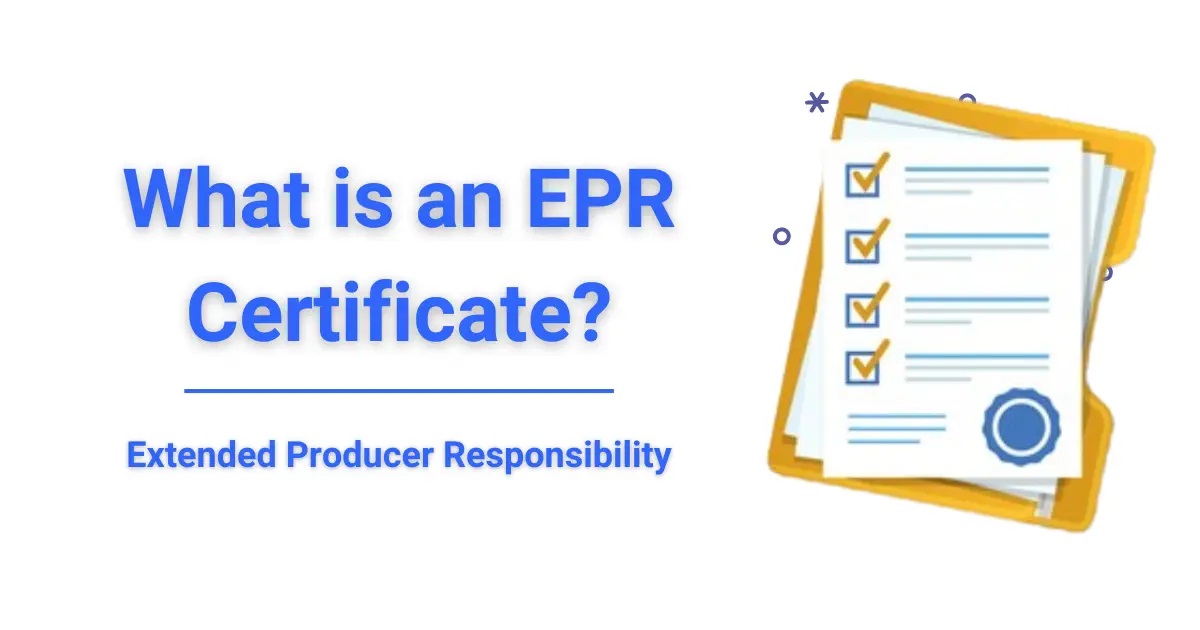
Speak with a human to filling out a form? call corporate office and we will connect you with a team member help.

Environmental Conservation: EPR certification is vital for environmental conservation as it encourages businesses to take responsibility for their products throughout their entire lifecycle, from manufacturing to disposal. This helps in reducing the environmental impact of products and waste.
Waste Reduction: EPR focuses on reducing waste generation by promoting recycling, reuse, and responsible disposal of products. This is critical in a country like India, where waste management is a significant challenge.
Legal Compliance: In India, EPR is mandatory for specific industries as per the E-Waste (Management) Rules, 2016. Failing to obtain EPR certification and comply with the rules can lead to legal consequences and penalties.
Public Health: Proper disposal and management of products like electronic waste (e-waste) and packaging materials are essential for public health. Inadequate disposal can lead to environmental contamination and health hazards.
Resource Conservation: EPR encourages businesses to optimize resource use, promote recycling, and reduce the consumption of virgin materials, which can lead to resource conservation and cost savings.
Several industries in India are required to obtain EPR certification due to the nature of their products and the potential environmental impact. The industries that typically need EPR certification most include:
Electronic and Electrical Equipment: The electronics industry generates significant e-waste, making EPR crucial for responsible disposal and recycling.
Packaging Industry: This includes companies involved in the manufacturing and use of packaging materials like plastics, glass, and paper.
Batteries: Battery manufacturers and importers must adhere to EPR regulations to ensure proper disposal and recycling.
Automobiles: The automotive industry is subject to EPR requirements, particularly for end-of-life vehicle recycling.
Pharmaceuticals: The pharmaceutical industry is responsible for the proper disposal of expired and unused medicines and packaging materials.
Consumer Goods: Manufacturers and importers of consumer products like appliances and packaged goods must comply with EPR rules.
Fast-Moving Consumer Goods (FMCG): This industry generates packaging waste, making EPR essential for responsible waste management.
Pesticides and Chemicals: Manufacturers of pesticides and chemicals are required to handle the disposal of hazardous waste responsibly.
Tyres: The tire industry needs to ensure proper disposal and recycling of used tires.
It’s important for businesses in these industries to understand their EPR obligations, obtain the necessary certifications, and implement effective waste management practices to protect the environment and comply with Indian regulations.
Step-1: Application with required enclosures
Step-2: Review of Application by CPCB
Step-3: Submission of additional information, if required by CPCB
Step-4: Grant of Certificate by CPCB
Growthonix Services is your trusted partner in obtaining EPR (Extended Producer Responsibility) Certification efficiently and swiftly. We specialize in simplifying the certification process, ensuring that your business complies with environmental regulations while minimizing complexities and delays. Let us help you make responsible waste management a seamless part of your operations. Contact us today to get started on your EPR Certification journey.
© Copyright 2024. All Rights Reserved by Growthonix